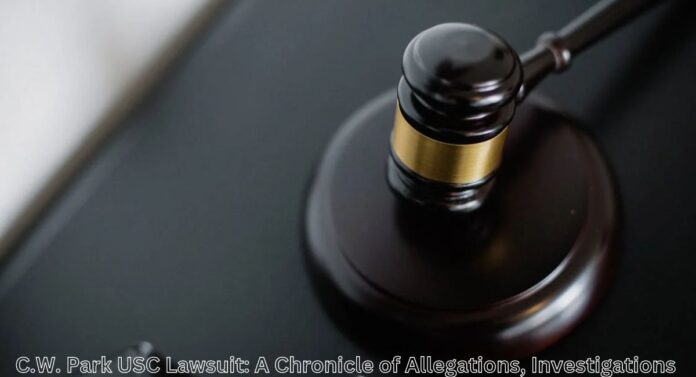Introduction
The C. W. Park USC lawsuit became a global phenomenon that affected the world of academia in 2021. This lawsuit laid down charges of sexual harassment and abuse by a professor at the University of Southern California identified as C.W.Park. The case elicited public indignation, made the community scrutinize the university’s approach to addressing similar grievances and provoked a debate on how to prevent students from falling victim to sexual misconduct in learning institutions. To the specifics, this article would discuss the circumstances that brought the case to court, the outcomes of the charges and the conversations sparked by the case.
Who is C.W. Park?
C. W. Park worked as the tenured professor of the Marshall School of Business at the University of Southern California. Tenure is a form of employment security provided to the professors after fulfilling certain conditions; it becomes hard for the university to dismiss a professor.
The Allegations
The lawsuit, filed by a former student assistant (referred to as “plaintiff” to protect anonymity), detailed a disturbing pattern of alleged misconduct by Professor Park. The plaintiff claimed that Park, exploiting his position of authority, subjected her to:
- Sexual Harassment: This can include unwelcome sexual advances, requests for sexual favors, and verbal or physical conduct of a sexual nature.
- Sexual Assault: This is any type of sexual contact or behavior that occurs without the victim’s consent.
Specifically in the previous case, the lawsuit claimed that Park was singling out Korean American students, akin to the plaintiff. It also said that other students had made similar allegations against Park before, therefore, the university may have had warning signs of such behavior.
The Lawsuit’s Claims
The lawsuit against USC and Professor Park sought:
- Compensatory Damages: This aims to financially compensate the plaintiff for the emotional and psychological harm allegedly suffered.
- Punitive Damages: These are intended to punish the defendant for egregious behavior and deter similar actions in the future.
USC’s Response
Following the lawsuit’s filing, USC placed Professor Park on leave and launched an internal investigation. The university ultimately terminated Park’s employment. However, the lawsuit raised questions about USC’s handling of the situation. The plaintiff’s lawyers argued that the university failed to act on previous complaints and create a safe environment for students.
The Lawsuit’s Impact
The C.W. Park USC lawsuit had a significant impact on several fronts:
- Increased Scrutiny on Universities: The case highlighted the need for universities to have robust procedures for handling sexual misconduct allegations and creating a culture of safety and respect for students.
- Focus on Professorial Conduct: The lawsuit raised awareness about the potential for abuse of power within academic settings and the importance of holding faculty accountable for misconduct.
- Support for Victims: The case provided a platform for victims of sexual harassment and assault to come forward and seek justice, encouraging others to do the same.
The Lawsuit’s Current Status
While details of any settlements or the lawsuit’s final outcome are not publicly available, the case itself has sparked crucial conversations and reforms within USC and the broader academic community.
Understanding Sexual Harassment and Assault in Educational Settings
Sexual harassment and assault can have devastating consequences for victims, impacting their mental and emotional well-being, academic performance, and overall sense of safety. It’s crucial to recognize the signs of these issues:
- Sexual Harassment: This can include inappropriate comments, jokes, or gestures of a sexual nature, unwanted touching or physical advances, and pressure for sexual favors.
- Sexual Assault: This is any type of sexual contact or behavior that occurs without the victim’s consent, including rape, attempted rape, and sexual touching.
If you or someone you know has experienced sexual harassment or assault in an educational setting. It’s important to seek help. Here are some resources:
- Campus Resources: Many universities have dedicated resources to support victims of sexual misconduct, including counselors, advocates, and reporting mechanisms.
- National Sexual Assault Hotline: 1-800-656-HOPE
FAQs
Q: What is the current status of Professor Park?
A: Public information regarding Professor Park’s current situation or any potential legal settlements is limited. However, USC did terminate his employment following the lawsuit.
Q: How can universities prevent sexual harassment and assault?
A: Universities can take several steps to create a safer environment for students, such as:
- Implementing clear and comprehensive policies against sexual misconduct.
- Providing training for faculty, staff, and students on recognizing and reporting sexual harassment and assault.
- Establishing clear reporting procedures for victims.
- Ensuring fair and impartial investigations of complaints.
Conclusion
It can be extracted that the C. W. Park USC lawsuit revealed a negative aspect of higher education. Which is the needlessness of the students and the ineffective prevention of the institutions. Thus, though the lawsuit’s outcome remains in private, its ramifications have rippled through the social sphere. The incident has brought awareness on how safer learning environment can be created, institutions made to be answerable and students protected.
It cannot be overemphasied that the efforts on the eradication of sexual harassment and sexual assault in learning institutions should go on. Perhaps, by increasing the awareness and putting more efforts into fortifying the policies and supporting the victims. One can help academia maintain the principle of ‘education to protect, not to harm.



